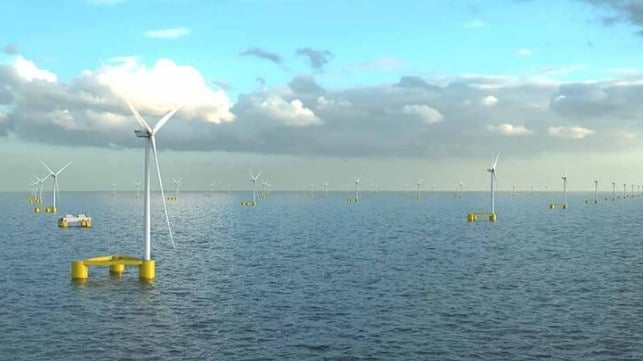South Korea Launches Consortium for World’s Largest Floating Wind Farm

Officials in Ulsan City, South Korea are forming a consortium of international and domestic companies for a series of floating offshore wind farms which collectively will form the world’s largest floating offshore wind farm. The four projects will provide a capacity of 6.2 GW of power capacity which officials said would be equivalent to six nuclear reactors.
“This project is expected to significantly contribute to the realization of South Korea’s energy transition policy, beyond revitalizing the local economy,” said city officials during the ceremony singing letters of intent on November 5. They expect the project will attract both domestic and international energy technology and capital helping Ulsan to become a center for the industry.
They point to the opportunities for South Korea’s shipbuilding industry which is centered around Ulsan to be part of this program and to benefit from the manufacturing and supply for the project.
City officials projected a total investment of more than $26.5 billion to realize the project. The consortiums include Norway's Firefly (Bandibuli) Floating Wind Farm, Denmark's Haeuli Floating Offshore Wind Power, Spain's KF Wind, and Korea-UK-France's Gray Whale Offshore Wind Farm.
The projects within the zone will include Firefly (Bandibuli) Floating Wind Farm, led by Norway's state-owned energy company Equinor, which calls for a 750 MW offshore wind farm more than 40 miles off the coast of Ulsan. Haeuli Offshore Wind Power plans a 1.5GW wind farm. KF Wind aims to complete a 1,125MW wind farm and the Gray Whale Offshore Wind Farm, involving domestic company SK Ecoplant in collaboration with UK and French companies, plans to establish a 1.5GW wind farm. The projects would be completed in 2030 and 2031.
In addition to the proximity to the shipbuilding industry, city officials highlighted the large industrial base in the region that has a high power demand.
They said that Ulsan City is ideally situated to become a hub for offshore wind power generation. They noted that there are consistent wind speeds around 18 mph in the sea to the east of Korea. The country’s energy policy calls for reducing the use of coal along with nuclear energy while increasing the focus on renewable sources.
